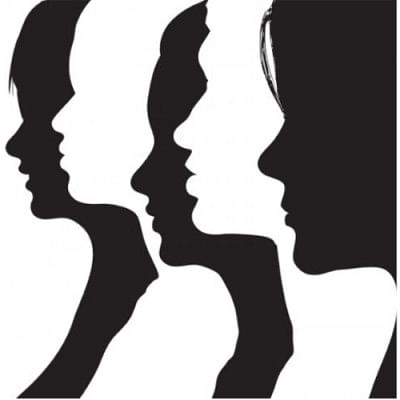Despite progress, young Bangladeshi women are still lagging behind

Bangladeshi women have come a long way in terms of economic and social empowerment. Yet beneath these encouraging statistics, we find some unexpected anomalies that call for serious attention.
Let us start with some positive statistics. Starting from a very low base in the early 80s, today girls are at par with boys in completing education up to higher-secondary level. Before the days of RMG, women's participation in the formal economy was minimal and their back-breaking work in the informal economy was invisible. Capitalising on the abundant female labour force, Bangladesh has become the second-largest RMG exporter in the world. Women's labour force participation more than doubled in the last couple of decades.
Bangladeshi women are not only progressing on the socio-economic front, they are also dominating the political arena. They have been filling prominent leadership positions—notably that of prime-minister—for the last three decades. The country ranked fifth in the 2018 Global Gender Gap Index (GGI) on closing the gap in political empowerment. In fact, Bangladesh ranked 48th in the overall GGI ranking across the spectrum of economic, educational, health and political empowerment indicators, just above the US and way ahead of all other South Asian and most African nations.
So, at BRAC Institute of Governance and Development (BIGD), when we wanted to get some insight into the thoughts and aspirations of the Bangladeshi youth, as well as their readiness to embrace the world of opportunities offered by the 21st century, we hoped to find young women moving forward with young men from a close distance, if not hand in hand. But, to our surprise, we find that they are still falling far behind young men.
In our nationally-representative survey, among the youth aged 15-35, we see that up to higher secondary level, young men and women indeed have equal completion rates across all socioeconomic classes, including the extreme poor. But how much of this achievement is translating to other indicators of empowerment?
Compared to their male counterpart, fewer young women, across all levels of education, say they are confident about their English language and computer skills—two most sought-after capabilities for better jobs. Female youth are also far less confident that their education will help them get a job.
Among those who have completed their education, young women are much less likely to be involved in earning activities than young men. We achieved gender equality in education up to higher-secondary level through incentives such as stipends. Indeed, three-quarters of the young women we surveyed have between primary and higher-secondary education, but their involvement rate in earning activities is the lowest. In this group, only 25 percent participate in earning activities, compared with 90 percent among young men with similar levels of education, about a third among women with low or no education, and almost 60 percent among women with higher education.
As we see, young women with higher education almost close the gap with young men in earning involvement. But only four percent young women study beyond higher secondary level; the rate is seven percent among young men.
Stark economic disparity between men and women is not uncommon across the world. But with so many powerful female leaders in the country, we wondered, do young Bangladeshi women feel empowered? Our survey was especially interested in the youth's perceived freedom of choice, not just because it is a basic human right, but also because it is closely related to an individual's sense of agency—the subjective experience of controlling one's actions—and consequently, one's motivations and behaviours.
In our survey, much higher rates of young men, compared to young women, reported enjoying freedom of choice in all crucial aspects in life—choosing educational institution, occupation, friend and spouse, freedom of physical movement and spending money. And, we see the starkest difference in case of freedom of physical movement; only 40 percent young women believe they can move freely, half as much as young men.
Lack of freedom in physical movement for young women is particularly troubling. As we have seen already, young women are lagging far behind young men in the most important aspects of life—higher education and skills and participation in the economy. Being able to move freely is essential for women to access education, training, social network and employment. And physical mobility is exactly where young women are struggling the most.
In 2015, Bangladesh was elevated to the category of lower middle-income countries. But we have a long way to go; still, almost a quarter of the Bangladeshis are poor and 13 percent are extreme poor. In this long quest for prosperity and equity, our youth should play the main part. When half the population, our young women, are lagging far behind, this process would neither be fast enough, nor equitable.
So, what can we do?
First, it is imperative to investigate: i) why the educational achievements of women—up to higher secondary level—are not translating into jobs; and ii) why the rate of pursuing higher studies is so low among young women despite better earning prospects. Our data suggests early marriage may be a reason. 62 percent of married female youth got married before turning 18 and, among the early-married youth, less than one percent studied beyond higher-secondary level and most of them are engaged in household chores. It indicates that early marriage is not just harmful for women's physical and mental health, but it also smothers their economic and educational potential.
Second, we also need to think about how we can ensure safety, security and comfort of women outside the home. In our survey, sexual harassment and rape were mentioned by majority of young women as a major problem in our country. Violence against women in many different forms is frequently featured in news headlines. So, one reason for the restricted mobility could be the feeling of insecurity among young women. But further research on this matter to identify the root causes and taking necessary action is crucial. As mentioned before, this is not just a basic human right, but also crucial for women to becoming productive citizens of the country.
Women are supposed to hold up "half the sky". But how can they do that when they fall so short?
Nusrat Jahan is Head of Business Development and Knowledge Management, BRAC Institute of Governance and Development (BIGD), BRAC University.

 For all latest news, follow The Daily Star's Google News channel.
For all latest news, follow The Daily Star's Google News channel. 



Comments